May December Tease with Natalie Portman and Julianne Moore
Netflix has shared a first look at May December, the Todd Haynes drama starring Natalie Portman, Julianne Moore, and Charles Melton. You can watch a tease for the film, opening the New York Film Festival on September 29, 2023, by scrolling down.
Directed by Todd Haynes from a script by Samy Burch, May December will debut in select theaters on November 17 and will stream on Netflix in the U.S. and Canada starting on December 1.
In May December, twenty years after their notorious tabloid romance gripped the nation, a married couple (Moore and Melton) buckles under the pressure when an actress (Portman) arrives to do research for a film about their past.
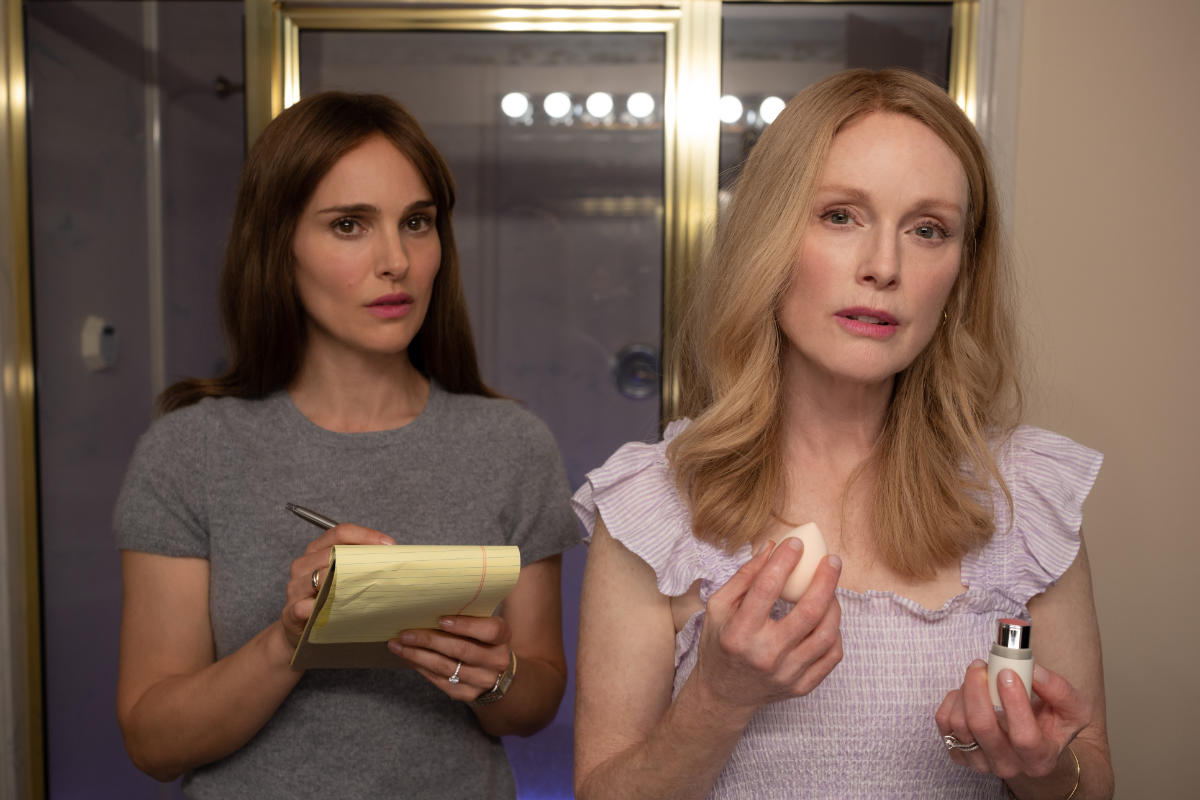
The producers of the movie are Natalie Portman, Sophie Mas, Pamela Koffler, Christine Vachon, Grant S. Johnson, Tyler W. Konney, Jessica Elbaum, and Will Ferrell.
The executive producers include Madeleine K. Rudin, Thomas K. Richards, Lee Broda, Jeff Rice, Jonathan Montepare, Samy Burch, Alex Brown, Thorsten Schumacher, and Claire Taylor.
In a lengthy statement, Todd Haynes talked about the Netflix release: “May December explores one of the great talents of the human species: our colossal refusal to look at ourselves.
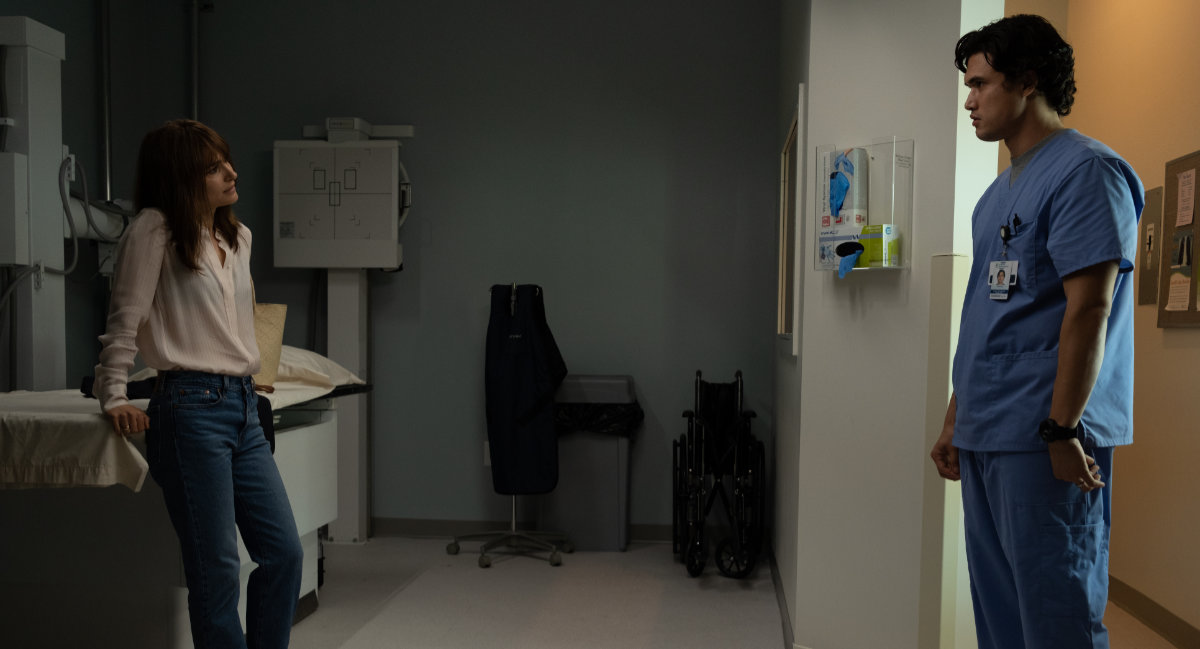
“Through the narrative premise of a film being made about a particular American family, a family born out of a public scandal that became a national media event, an actress descends upon Savannah, Georgia to study the woman she’ll be portraying and the lives that have carried on as a family ever since.
“It is through this delicate process of narrative exploration that this strange, unsettling story is framed, and that we come to learn about the past, the matriarch at the center of the scandal and her young husband, a Korean American, whom she began her affair with when he was 13-years old.
“All lives, all families, are the result of choices, and revisiting them, probing them, is a risky business. But it’s hard to think of more volatile romantic choices than these, and all the more so when so many defenses have been called upon to shut out such unanimous contempt and judgment from the world.
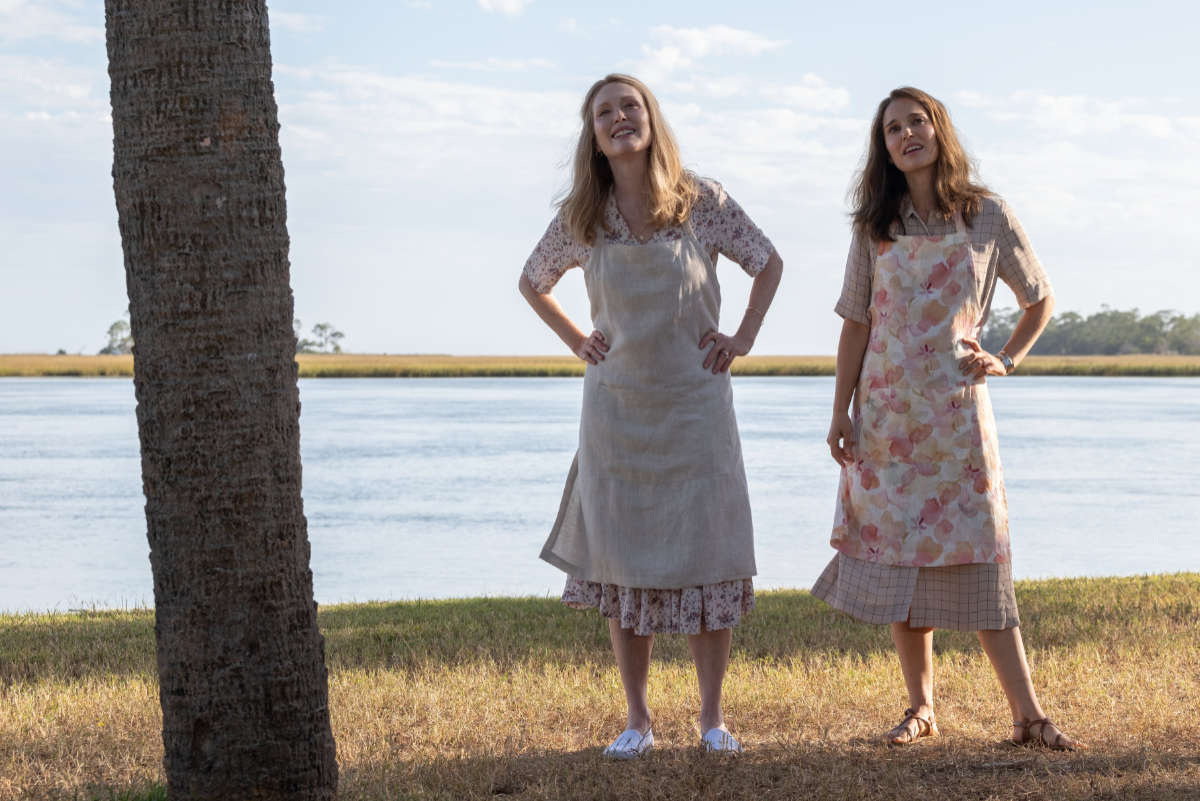
“The rigid stasis Elizabeth, the actress, begins to penetrate is the result of two stubborn decades of Gracie and Joe Atherton-Yoo’s persistence, now on the final days leading up to their two remaining children’s high school graduation.
“But as Elizabeth observes and studies Gracie and her world, and gets to know her husband Joe, her reliability as narrator begins to falter. The honest portrait she hopes to erect, her own investment in revealing truths, becomes clouded by her own ambitions and presumptions, her own denials.
“And as Joe comes more and more into focus, both for us and to himself, we begin to see more similarities between Elizabeth and Gracie than either seem capable of seeing in themselves. Through this quiet shifting of perspective, the film moves from single to double to triple portrait.

“What so appealed to me about Samy Burch’s exceptional script, which Natalie Portman sent me in 2020, was how it navigated potentially volatile subject matter with a kind of observational patience that allowed the characters in the story to be explored with uncommon subtlety. It simmered with moral and narrative ambiguity which, as a film, would enlist the viewer into an active and excited state of watching and questioning.
“With such compelling material, the project provided me the long-awaited opportunity to work with Natalie Portman — to ignite the reflexive whirligig of an actress playing an actress — and if that were not enough, to pair her with Julianne Moore in the fierce and inscrutable role of Gracie. Completing the triad would be no simple feat; but the casting of Charles Melton as Joe would serve to fill in the storied past and depict the treacherous present with astonishing subtlety.
“Immediate cinematic associations were undeniable: ‘Persona,’ of course, and other of Bergman’s films
which put women in confrontation with one another, or which put characters, in key moments, in direct
address to the lens, like in ‘Autumn Sonata, Winter Light’ or various films of Godard’s.
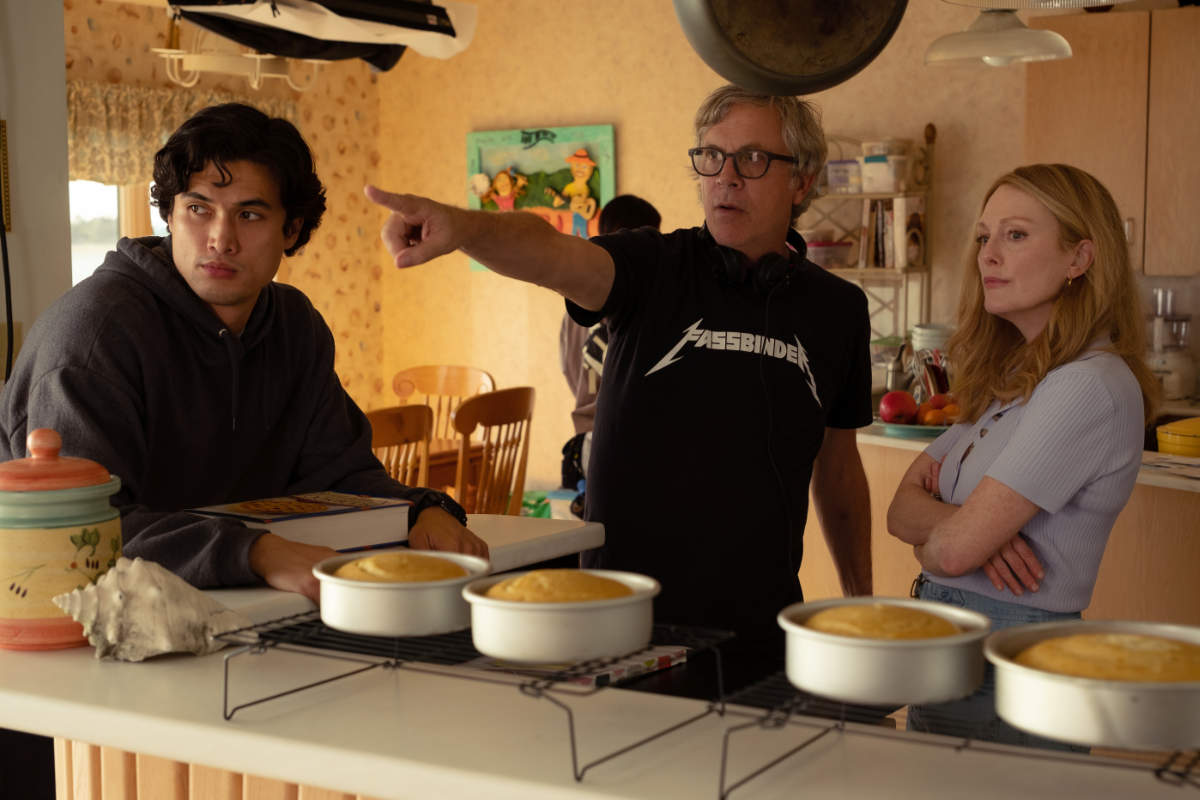
“This direct address, when our three central characters confront themselves in mirrors, would become a through-line in ‘May December.’
“In addition, films about older women and younger men, like ‘The Graduate,’ ‘Sunset Boulevard’ or ‘Sunday Bloody Sunday’ (or the more traditional inverse variety, like in ‘Manhattan’ or ‘Lolita’). But particularly those examples in which a stylistic minimalism, like in ‘The Graduate’ or ‘Manhattan,’ is nearly indistinguishable from how the film succeeds.
“Due to shifting schedules the production was launched quickly during the second half of 2022, creating a kind of synergy that would benefit our budget and extremely tight shooting schedule. But everyone involved took hold and shared in the creative strategies that provided both an economy of style and a way, I hoped, to invigorate how the film would be experienced.
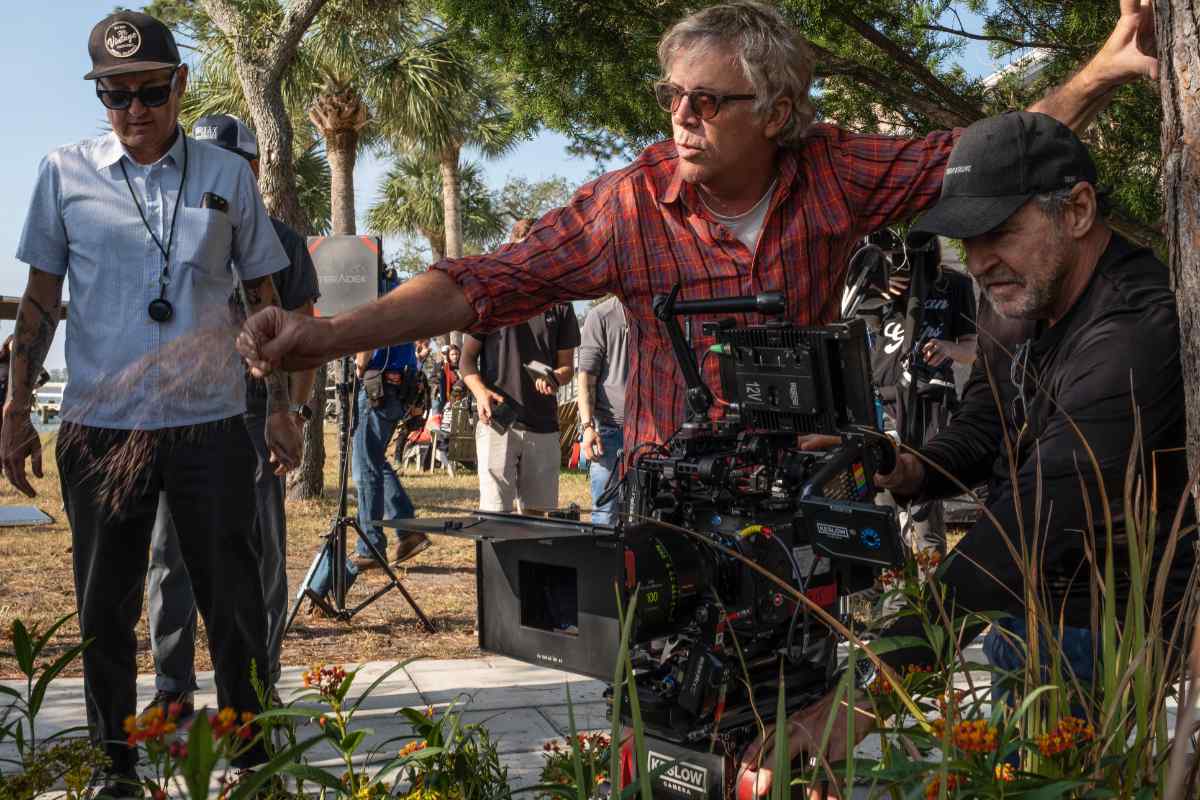
“One might call it an excited, at times mordant, suspense, often reflected in the film’s uncommon use of music. Michel Legrand’s score for Joseph Losey’s 1971 film, ‘The Go-Between,’ began as a working document during my preparatory stages, but quickly spilled into production, where the score was played throughout the film’s shooting (in ways I’d never used a singular existing score before) and on through the cutting of the film.
“Composer Marcelo Zarvos, in the end, used the Legrand score in combination with his own compositions for his arrangement of the film’s completed music. The result, like many of my films, along with its stylistic references, is a kind of dialogue between the themes and narrative strategies in ‘May December’ and those of other films, directors and eras of filmmaking it evokes.
“The film’s remarkable script and its three lead performances (filled out by by Cory Michael Smith, Elizabeth Yu, Gabriel Chung, Piper Curda, among others) and all of the beauty and nuance provided by my creative partners, have restored what I believe is still possible in cinema: to find identification in the least likely places, and be compelled and surprised by a story and its characters without ever being entirely comfortable with who is right or wrong.”

